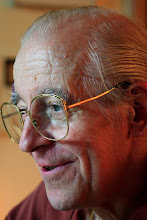There was a time, here in Korea, when the expression ‘saba-saba (사바-사바)’ was used widely. It was a symbolic expression for the dissolution of the social order in the chaotic period of the 1950s after liberation from Japan (1910-1945) and the Korean War (1950-1953).
Saba-saba refers to the act of giving money or expensive gifts in return for a favour. One theory is that it originated during the Japanese colonial period with someone asking for a loan of two mackerels, or saba in Japanese. Another theory is that saba-saba is the sound that’s whispered when someone is giving a bribe. The act of bribery was so widespread back then that it was considered one of the by-products of the decade after liberation. It was considered a panacea to secure preferential treatment in business or employment and it was eventually considered a way to live life easily.
Saba-saba refers to the act of giving money or expensive gifts in return for a favour. One theory is that it originated during the Japanese colonial period with someone asking for a loan of two mackerels, or saba in Japanese. Another theory is that saba-saba is the sound that’s whispered when someone is giving a bribe. The act of bribery was so widespread back then that it was considered one of the by-products of the decade after liberation. It was considered a panacea to secure preferential treatment in business or employment and it was eventually considered a way to live life easily.

Saba (mackerels)
People used to say, “In this world, there is nothing that saba-saba cannot achieve, and nothing can be achieved without saba-saba.” The practice was so prevalent that the national police declared in July 1955 that it would eradicate the practice of saba-saba associated with crimes.
These days, no one uses the term saba-saba anymore, but the custom is continued in the culture of bribery.
Early this year, Cho Hyon-o (趙顯五, 조현오, 1955- ) the commissioner general of the National Police Agency, said that he has heard about some policemen serving in the luxury districts south of the river taking bribes of tens of millions of won from massage parlours and other similar businesses. He ordered an inspection of police stations in Kangnam (江南區, 강남구, Kangnam-ku), Socho (瑞草區, 서초구, Socho-ku) and Songpa (松坡區, 송파구, Songpa-ku) Districts (區, 구, ku) and in just 10 days, three police officers were caught and charged with alleged corruption. They had received entertainment and bribes worth several million won for turning cases around in the business’ favour. It was no joke that police officers competed to be assigned to the lucrative stations in the high living areas south of the river.
Once you get a taste for dark money, it’s hard to live without it. German sociologist Georg Simmel (1858-1918) wrote about this in The Philosophy of Money. Through money, the unlimited variety of human personalities disappears and the soul gets lost. Even police officers may be tempted to accept a bribe for the personal or professional benefits it brings. Nevertheless, it is still a mistery how the countless businesses in the high level districts of the city would dare to commit such illegalities as tax evasion and illegal operation.
Giorgio Olivotto
Seoul, Korea
December 11, 2011
Seoul, Korea
December 11, 2011

Nessun commento:
Posta un commento